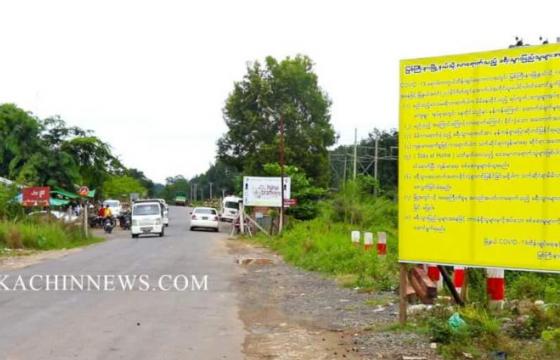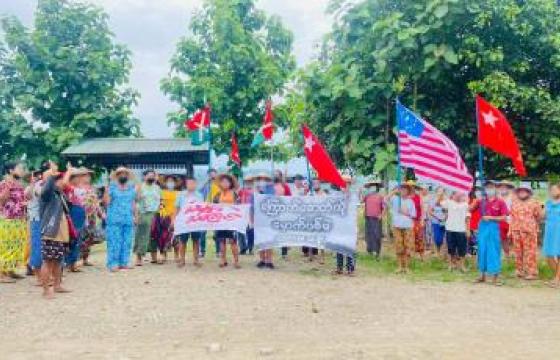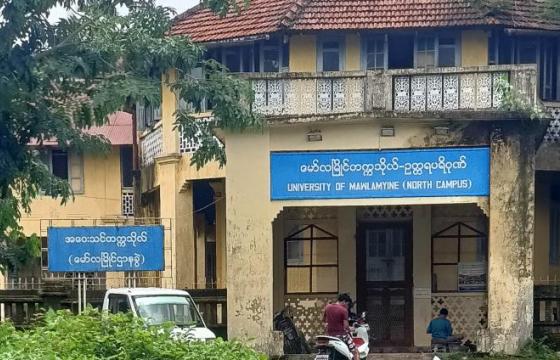In general, the ethnic parties did not live up to the widespread expectations that we could reap a good harvest of voters disenchanted by NLD’s glaring failure to make headway in peace talks and the zero progress towards any plan for a federal union to enshrine ethnic rights.
It widely reported the KSPP in Kachin State lost many voters in the last week of the campaign when the chief minister aligned with NLD spread the unfounded allegation that KSPP had made a secret pact with the military-aligned UDSP.
Daw Dwe Bu, Vice-Chair-1 of the Kachin State People’s Party (KSPP) said: “We were accused that we would assist a return to military rule, if ethnic parties ended up with a majority. The people had been told KSPP had made an alliance with the USDP and another piece of disinformation was that KSPP’s survival was dependent on funds from USDP.”
This scared many voters into voting for the NLD. Some voters reacted by not voting for anybody.
A third aspect that harmed the KSPP support was the opposite allegation “of being the KIA in Putao. We were accused of being the KIA in the place where the USDP is strong. We are accused of making an alliance with the USDP in Myitkyina where NLD is strong. “
Daw Dwe Bu is convinced “The people wanted to cast their votes for the KSPP. But another problem are voters who feel our party cannot make a difference because we cannot form a government. “In the election, the KSPP secured three seats for the Kachin State parliament and one for the lower house.
U Gwan Gaung Aung Kham, Vice-Chair of the KSPP said: “The reason why the parties faced losses is for instance, migrant workers in Swanparabwan and the votes from the army. On the real ground and among the locally-born voters we are strong. But the migrant workers cast their votes for the NLD. The votes from the army went to the USDP. The similar problems were reported in Waingmaw and Hpakant Township. The main point is that migrant workers can cast their voters with only 90 days stay in the constituency and end up tipping the balance in favour of non-ethnic parties.”
In many cases very closely-fought election contests where ethnic parties have strong local support, ended up in the hands of either NLD or USDP by a meagre margin attributed to the influx of non-ethnic voters from outside the region voting for the Bamar parties based on the 90-day rule.
Sai Swan Hlw, the Information officer in-charge of the SNLD in Waingmaw Township in Kachin State said: “Due to the massive inflow of migrant workers, indigenous people lose their voting rights. As a matter of fact, there are 80,000 voters in Waingmaw Township. The voter turnout is around 60 per cent. Around 30 of 60 percent of votes are from indigenous people... During the COVID period, it is an extra challenge.
Mann Aung Pyi Soe, Chair of the Karen National Democratic Party (KNDP) said: “The big parties (meaning NLD & USDP) will take control of village administrators. In a constituency, the big party told the village administrator to give the votes for the Red and to choose him. The NLD got the majority votes. The NLD’s management is much better than other parties. Weak management is one of the reasons why the ethnic parties suffered many defeats.”
The KSPP, SNLD, CNLD and other ethnic parties are also blamed for the “Bamar bias” of the UEC and the lack of a level playing field for their relatively weak showing. International election monitors and human rights organization HRW – (Human Rights Watch) have concluded that on many grounds the 2020 election did not satisfy international election standards as free and fair.
Khu Thae Yal, Secretary of the KySDP said: “The NLD is the ruling party. The government is led by the NLD. The government provided cash assistance to the families with no regular income. The people cast their votes for the party which can provide cash assistance. There are views that the NLD is still a single party which can compete against the army. Most ethnic people have little understanding of politics.
0In Kayah State, the NLD secured 20 seats, the KySDP, eight and the USDP, six. In Chin State, the NLD secured up to 36 out of 39 seats.
In the 2020 General Elections, 19 of 91 contesting political parties secured the seats.
The NLD secured 920 seats, the USDP, 71, the SNLD, 42, the ANP, 15, Ta’ aung National Party, 12, the MUP, 12, the Pa-O National Organization, 11, the Kayah State Democratic Party, eight, the Kachin State People’s Party four.
Three seats each were secured by the AFP and Wa National Party; two each by Lahu National Development Party, the Zomi Congress for Democracy, Lisu National Development and New Democracy Party (Kachin); one each by the Karen National Party, the Karen People’s Party, the Shan Nationalities Democratic Party and Chin National League for Democracy (CNLD).
Only four independent candidates secured the seats—two for region and state parliaments and two for ethnic affairs ministers, according to the election results issued by the UEC.







